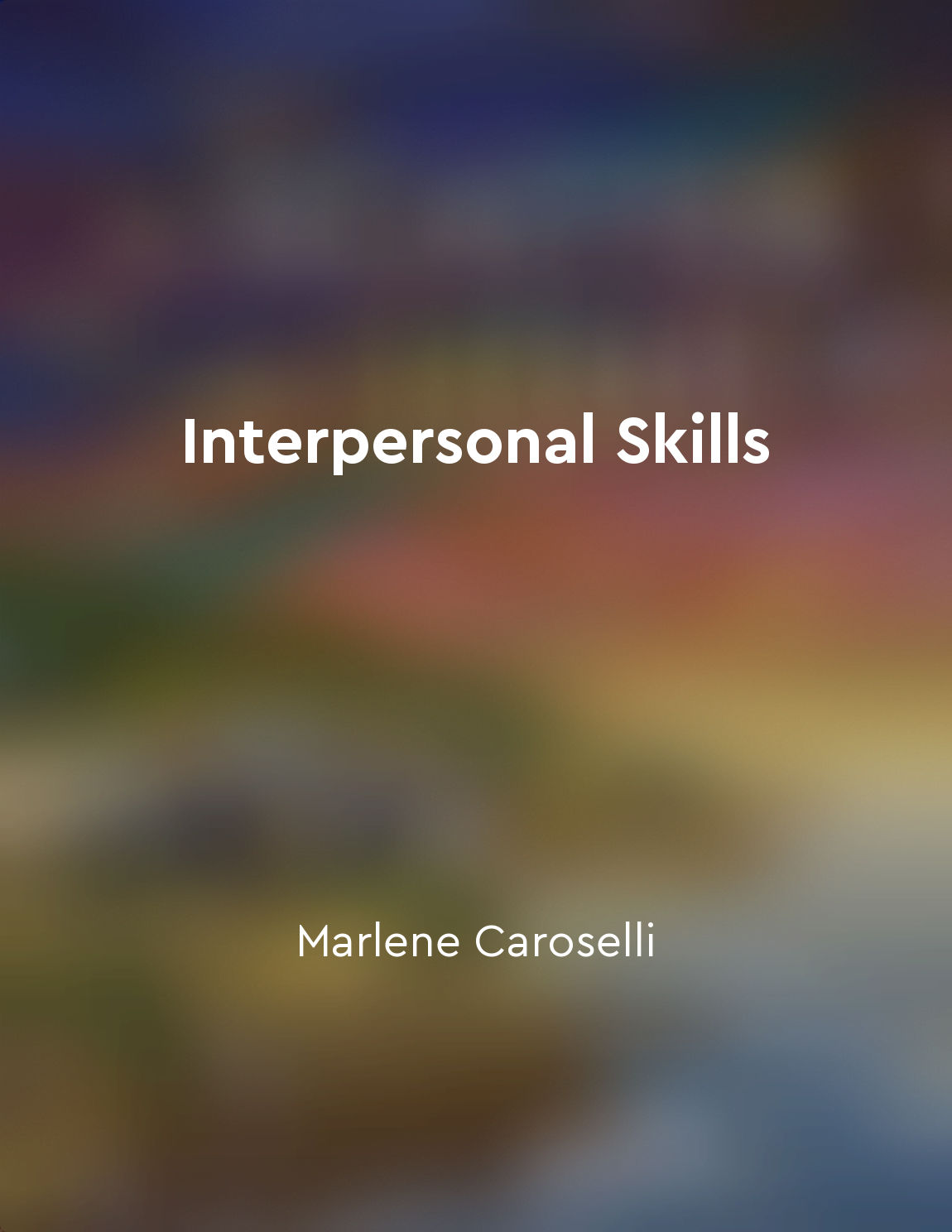Building rapport is essential for building relationships from "summary" of Interpersonal Skills by Marlene Caroselli
Building rapport is the cornerstone of effective communication. It is the bridge that connects individuals, allowing them to establish a bond based on trust, understanding, and mutual respect. In the realm of interpersonal skills, building rapport is not merely a suggestion; it is a necessity. Without a strong foundation of rapport, relationships remain superficial and lack the depth needed for meaningful connection. When individuals take the time to build rapport, they show a genuine interest in the other person. This act of attentiveness creates a sense of validation and respect, fostering a positive environment for communication to thrive. By actively listening, asking thoughtful questions, and demonstrating empathy, individuals can demonstrate their commitment to building rapport and nurturing relationships. Building rapport requires more than just words; it also involves nonverbal cues and body language. A warm smile, open posture, and eye contact can convey sincerity and build a sense of connection. By mirroring the other person's body language and gestures, individuals can create a sense of harmony and understanding that transcends verbal communication alone. In the context of interpersonal skills, building rapport is not a one-time task but an ongoing process. It requires consistency, patience, and effort to maintain and strengthen relationships over time. By showing genuine interest, empathy, and authenticity, individuals can cultivate rapport that withstands challenges and nurtures meaningful connections.- Building rapport is essential for building relationships that are built on trust, respect, and understanding. It is the foundation on which meaningful connections are formed, allowing individuals to communicate effectively, resolve conflicts, and collaborate successfully. By prioritizing the establishment of rapport, individuals can create a positive environment that fosters growth, cooperation, and mutual support in their relationships.
Similar Posts
Start conversations by asking openended questions
One way to begin a conversation is to ask an open-ended question. Open-ended questions are those that cannot be answered with a...
Encourage feedback and collaboration
When you're trying to get better at having coaching conversations, there's one key idea that you'll need to keep in mind: encou...
Appealing to values resonates with individuals
Appealing to values is a powerful tool when it comes to influencing others. By tapping into what individuals hold dear and impo...

Emotions play a significant role in persuasion
The role of emotions in persuasion cannot be overstated. When trying to influence others, tapping into their emotions can be a ...
Being reliable and dependable builds credibility
Reliability and dependability are crucial qualities in building credibility with others. When you consistently follow through o...
Empathy is key in effective communication
Empathy is not a nicety; it is a necessity in communication. It is the ability to understand and share the feelings of another ...

Stay focused on their goals
It's imperative to keep in mind the importance of staying focused on the goals of the person you're trying to influence. This m...

Manipulation can occur in relationships
Manipulation can occur in relationships when one person seeks to control or influence another for their own benefit. This can m...
Empathy allows us to connect with others on a deeper level
Empathy is a powerful tool that allows us to form deeper connections with the people around us. When we are able to see things ...

Subtle cues can lead to powerful manipulation results
The power of manipulation lies in the ability to subtly influence others without them even realizing it. By using subtle cues, ...


